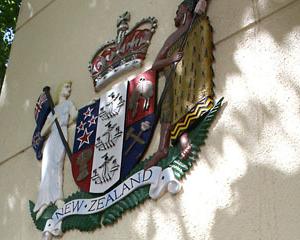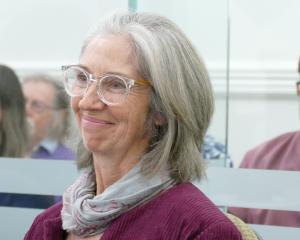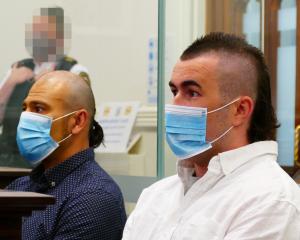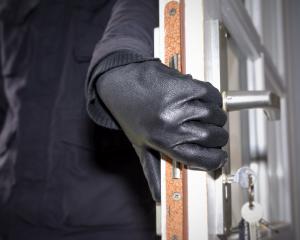A man accused of a stabbing a man to death then inflicting knife wounds to himself, claimed the dead man had been calling up Maori gods and going on about "witch stuff', a jury in the High Court at Rotorua was told today.
On trial is Christopher Allan Heenan, 51, an artist, carver and tattooist, who has pleaded not guilty to the murder of Raukawa Newton, 38, at Rotorua on October 11, 2007.
Opening the Crown's case, prosecutor Fletcher Pilditch said Mr Newton had suffered from a bipolar illness but with medication this was under control at the time of his death, although his condition could be aggravated by alcohol.
On the night Mr Newton died he had been drinking with Heenan. About midnight, a neighbour had been woken by banging on his door. He opened it to find a blood-covered Heenan on the doorstep claiming there was someone dead in his house - that he did not know what to do.
Police discovered much of Heenan's unit drenched in blood and Mr Newton's body on the lounge floor. Heenan had been ranting, incoherent and unco-operative.
The Crown claims that over following months and years Heenan told numerous people differing versions of the events surrounding Mr Newton's death. He also frequently said he could not remember what had happened.
In 2008 he had told his teenage son visiting from Levin that his claim to police that both he and Mr Newton may have been stabbed by someone in a dark hoodie he'd seen in his driveway was "just a story for the pigs".
Heenan went on to tell his son he was proud to have killed Mr Newton and had done it for his family because Mr Newton had been going on about "witch stuff" and calling up Maori gods.
While Mr Newton was sculling from a bottle of bourbon he had stabbed him in the chest then jabbed at himself to make it look as if he too had been stabbed.
He told his son this was to be his alibi, Mr Pilditch said.
"This is not the first time the accused has used the `I can't remember act'. He has something of a history for it including a serious stabbing incident in Te Puke in 2005," Mr Pilditch added.
The trial, before Justice Timothy Brewer and a jury of seven men and five women, is scheduled to last from three to four weeks. The Crown is to call 80 witnesses.











